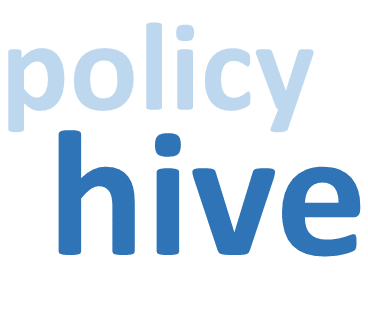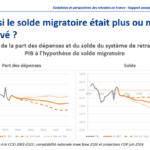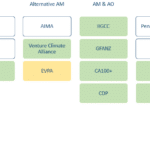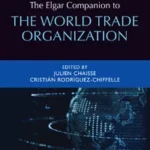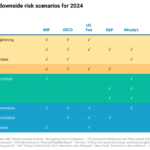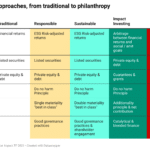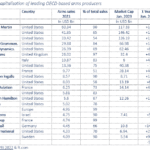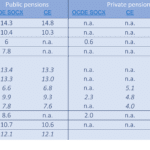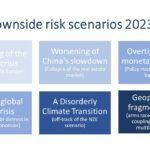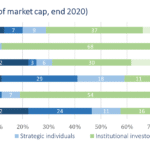- Deep dive into French parliamentary discussions on international taxationDuring the annual budget discussions end-October, the National Assembly, the lower house of the French parliament, considered two proposals that would have fundamentally reshaped France’s tax system for multinational enterprises (MNEs) and for ultra-high-net-worth individuals. The debates provided a unique snapshot of … Read more
- Assessing the military in times of re-armamentImagine monitoring and assessing a doubling of the public education budget in the next five years but with a number of caveats: This, very unlikely, scenario for education is happening across Europe in another key government function: defence policy. Following a decades-long … Read more
- NGO funding under pressureThe year to come might be the most challenging one in the history of NGOs. All three key sources of NGO funding – households, public funding, philanthropies – are under stress. The political context could not be more hostile and depressing for … Read more
- Why are core labour rights so poorly treated in responsible investment frameworks?Core labour rights, as defined by the International Labour Organization, cover five principles: freedom of association and effective right to collective bargaining, elimination of all forms of forced or compulsory labour, effective abolition of child labour, elimination of discrimination in respect of … Read more
- NGO funding challengesFollowing a long period of growth, the financial sustainability of International NGOs (INGOs) is facing challenging times: stagnating donations by middle-class households hard hit by the un-ending series of crises (Covid-19, Energy crisis, rising inequalities), decreasing public funding and ODA flows, excessive … Read more
- Immigration is the main policy tool at hand to improve French pension sustainabilityThe annual report of the French Pensions Advisory Council (Conseil d’Orientation des Retraites, COR) published early June confirms that the pay-as-you-go system is in deficit. But it is a deficit under control in the long term, from -0.4% pt of GDP in … Read more
- Mapping key advocacy forums on EU-wide ESG policyThe investment chain Which institutional forums matter when it comes to shaping policy and practices related to ESG and responsible investment in Europe? Mapping out these forums can be based on the “investment chain” that channels money from investors to the real … Read more
- From social clause to policy space: the trade union narrative on the WTOAbstract Since 1994, the trade union narrative on the WTO has shifted from a single- and pro-active issue – a social clause linking trade liberalisation to core labour standards – to a broader, but more defensive, agenda on preserving governments’ “policy space” … Read more
- The outlook and downside risk scenarios for 2024 (Updated)The global economy remains in recovery mode from the burst of high inflation of 2022 and monetary tightening that followed and is still under threat of rising geopolitical tensions and armed conflicts. For most regions and countries, GDP growth rates will remain … Read more
- Overview of Impact Investing InitiativesImpact investing is one category of investment practices that sits within a broader spectrum, ranging from traditional and purely financial motivated investment to responsible investment and to philanthropy. One of the distinct feature of impact investing is the duty to demonstrate the … Read more
- Downside risk scenarios by international organisationsThe downside risk scenarios identified in the latest flagship reports by international organisations (IMF, OECD, WB, UN, EC) and central banks (BIS, ECB, US Federal reserve) are recapped in the following flow chart – including where they intersect most. Overall, the most … Read more
- A reality test for the European definition of sustainable investmentHow should a “sustainable” financial investment be defined? The European Responsible Investment Framework, including the 2019 Sustainable Finance Disclosure Regulation (SFDR) and the 2020 Environmental Taxonomy, draws three fundamental principles: This European process, clarifying what constitutes sustainable investment, is obviously welcome. Implementing … Read more
- The economic aspects of rearmamentGeopolitical risks feature unusually high in economic outlooks by international organisations. The challenge for economists is to predict and “quantify” the economic consequences of geopolitical tensions and armed conflicts. Broad trends can of course be drawn with respect to trade and investment … Read more
- Does France spend too much on pensions compared to OECD averages?Public pensions in France would be equivalent to 14% of GDP, an alarming level for many observers. This figure comes from the OECD Economic Survey of France 2021. What concerns OECD economists is not so much the financial sustainability of the system, … Read more
- The outlook and downside risk scenarios for 2023-2024The traditional batch of annual economic outlook reports released end of 2022 and in January this year – including the IMF (October & January update ), OECD (November), World Bank (January), the European Commission (November), the European Central Bank (December) & US … Read more
- Where Are Tax Havens Really Located?Despite its centrality to the discussion on tax evasion and tax avoidance, there is no established and stable definition of a “tax haven”. Two approaches coexist: (i) a legal approach aiming at identifying “non-cooperative” jurisdictions in international cooperation to curb tax evasion … Read more
- Taking Stock of Shareholder ActivismShareholder activism, we are told, is on the rise. The number of campaigns, both shareholder value and environmental, social and governance (ESG) oriented, is expected to pick up in the US, while Europe is poised to enter a “golden age” of activism. … Read more
- The digital regulatory agenda: How it is shaping upThe escalating concentration in the digital economy has led to a seriously crowded regulatory agenda in 2022 in both the E.U. and the U.S. While the U.S. Federal-level agenda is much focussed on competition aspects, the E.U. has a broader scope, including … Read more
- Comments on the proposal of revision of the G20/OECD Principles of Corporate GovernanceOn 19 September 2022, the OECD released a proposal of revision of the G20/OECD Principles of Corporate Governance. First drafted in 1999 as a set of OECD Principles (following the Russian and Asian Financial crises), the Principles were substantially revised in 2004 … Read more
- The ESG Landscape in 2023In the past year, the responsible investment community has gone through more developments than in the previous 10 years combined. By the end of 2023, we should have a new G20-endorsed global standard on Environmental, Social and Governance (ESG) reporting, more stringent … Read more
- 7 risk scenarios for the world economyParis, 30 July 2022 The recent flagship reports by leading international forums – the IMF in April and in July, the WEF in May, the OECD, World Bank and BIS in June respectively – offer a fairly consistent picture of the years … Read more
